Grower's book - News
IPM 2025 – Long live the superlatives!
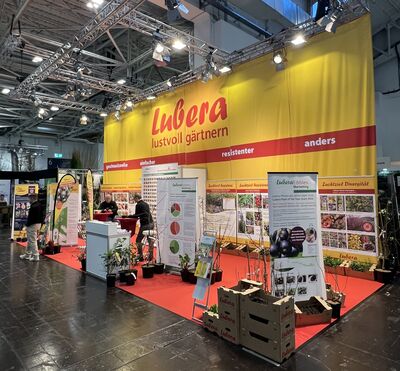
We live in times of superlatives. The highest average temperatures ever measured, the highest energy prices, the highest population in Germany and Switzerland, the list goes on. Of course, the IPM doesn't want to be left behind and is reporting – once again – more visitors.
What is our impression as exhibitors? Have we achieved our goals? Did we have enough visitors at our stand? In short, the question is whether there will be a Lubera stand again at the IPM 2026.
Read moreArctic raspberry (Rubus arcticus) – the ground cover with edible fruits
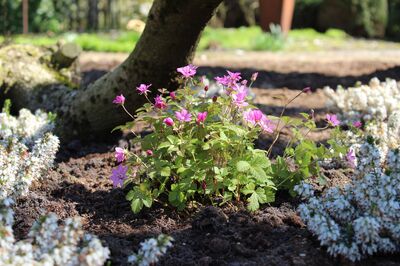
Arctic raspberries have been enriching our fruit-bearing range since 2025. However, this is not only about the fruit; the Arctic raspberry, or Rubus arcticus as it is known botanically, has other benefits as well. Over the years, the low-growing plants form a low carpet and the pink flowers radiate from afar. With the Arctic raspberries, we now have a new group of varieties with completely different uses than the usual representatives of the genus: Rubus – the raspberries and blackberries.
Read moreThe long road to self-fertile berry varieties – using the example of Mayberries/Firstberries® and golden currants/Fourberries®
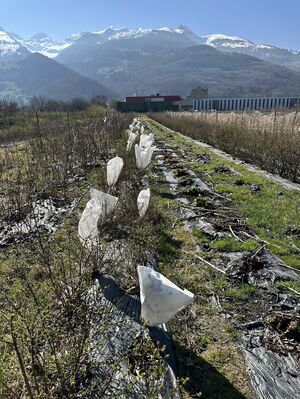
Contrary to popular belief, most plants (at least in an undomesticated state) are not self-fertile, i.e. they cannot fertilise themselves, but normally need a cross-pollinator, another variety of the same species. For cultivated plants or for plants that are to become cultivated plants, self-fertility is certainly a desirable characteristic. In this article, Markus Kobelt shows how Lubera® breeding attempts to obtain self-fertile varieties in Ribes aureum fruit varieties and in Lonicera...
Read moreWhat we do: the latest on propagation
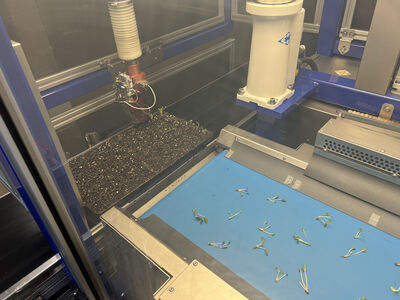
Perhaps you also wonder from time to time what exactly the people at Lubera Edibles do every day. Do they do anything with in vitro propagation? But do they also sow seeds, take cuttings and wood cuttings? The short answer is yes, but...
In vitro propagation is still the main tool for propagating high-quality young plants. Why and what exactly we do will be explained below.
Read moreHowunder® - Sambucus canadensis as a garden elderberry
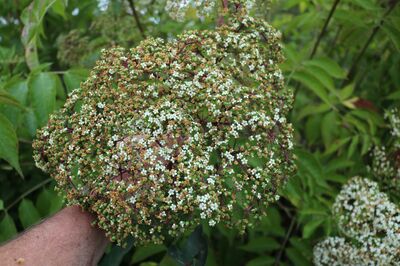
In addition to the black elderberry (Sambucus nigra), other species have great horticultural potential. Apart from the different native elderberry species used as wild and bird food trees, there is also the Canadian elderberry – sometimes also known as the American elderberry. In this article, we would like to show how the Howunder® – what we call the Canadian elderberry – can enrich any assortment and any garden.
Read moreCassissima® blackcurrants as plant of the year 2026
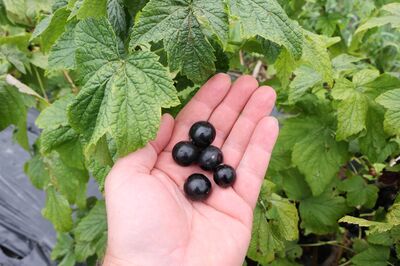
Lubera and Lubera Edibles are making 2026 the year of blackcurrants, more precisely the year of our Cassissima® new varieties. For this purpose, the Cassissima® varieties from Lubera® will be specially promoted and highlighted in the consumer market and also BtoB (Taspo, Gabot) in 2026. What are the main reasons for this step, for the promotion of such Cinderella fruits? And is there even a market for them? How important are blackcurrants in the berry plant market and what are the...
Read moreFruit tree young plants from Lubera Edibles - The new Treelings®
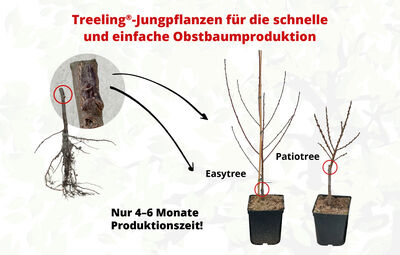
We can offer a few fruit tree species, such as cherries, as ungrafted young plants. But for most fruit trees this is still not possible or leads to a juvenile and infertile phase of the young trees that is too long. However, which young plants are available to producers of container plant products who wish to grow fruit trees in pots? And what should this fruit tree young plant product look like so that it is easy to process and allows a relatively short production period?
Read moreThe new market for premium vegetable plants
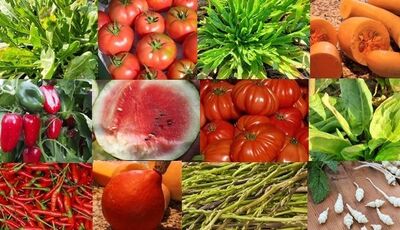
Lubera.com, the online store of our sister company, has been selling premium vegetable plants for several years. These are grown in 1.3-litre square pots, packaged with care and then reliably shipped to customers. The price for most plants is currently around EUR 5.50, with a price increase of 10% planned for 2025. But how big is this market? What are Lubera's experiences in general? We are not initially discussing which companies could produce these young plants and where they are sold, we...
Read moreGold Medal for our variety introduction Passiflora Cooltropics® Snowstar®

The ‘Innovert Competition’ is held in France every year. This is where companies present their best new variety introductions in horticulture. Together with our French partner, Travers Nurseries, we submitted the white-flowering passionflower Cooltropics® Snowstar® this year. The variety comes from our own breeding programme for hardy passion fruit and was launched on the market this year.
We were delighted when the winners were announced and Snowstar® stood at the top of the podium and won...
Read moreHow do I put together my berry assortment?
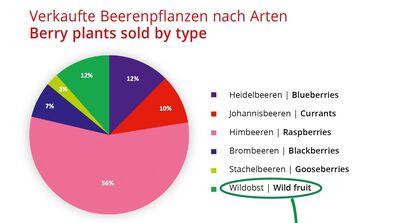
Hopefully they are on holiday. Or even better, enjoy the fact that everyone else is on holiday. But once again, every plant producer is wondering which berry plants, varieties and assortments to choose for next spring. Because soon the young plants will have to be ordered. At Lubera Edibles, too, young plant production is controlled according to the order history and incoming orders. Later in winter or spring, you then have to take what is still available.
Read more